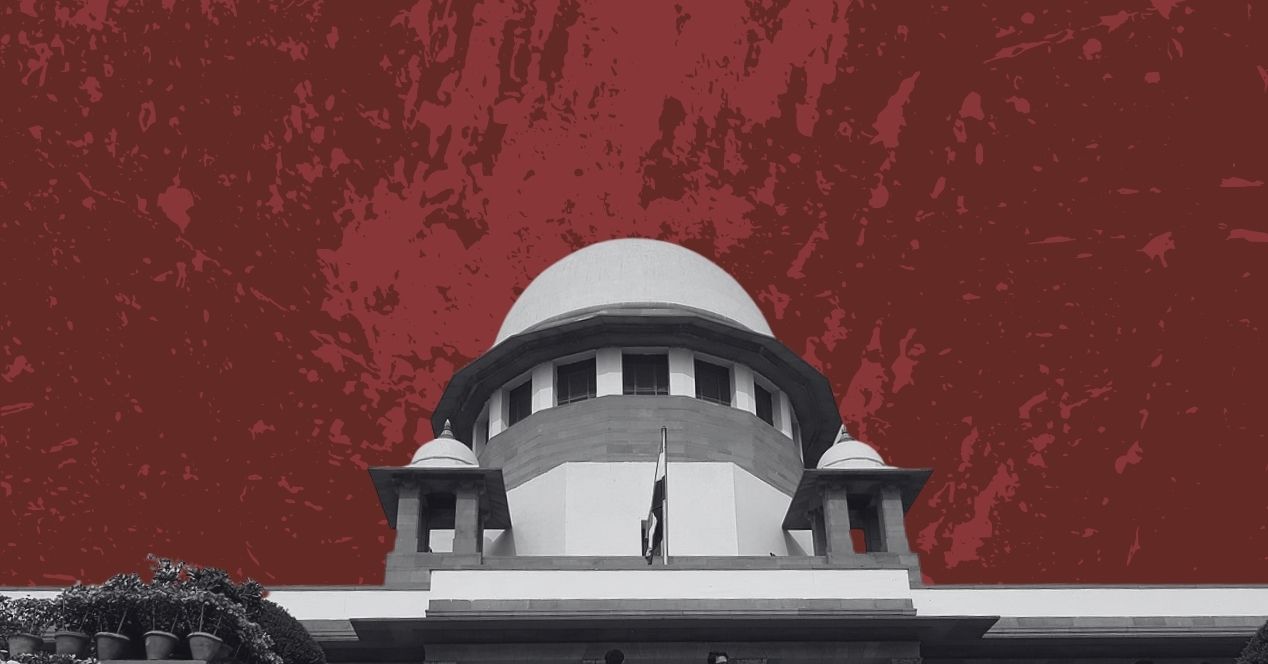Analysis
2022 Half-Year Review: Key Supreme Court Judgments
The Supreme Court delivered key Judgments on Reservations, Sedition, OROP and the constitutionality of the FCRA Amendment.

The Supreme Court delivered a handful of impactful Judgments and Orders during the first six months of 2022. Some of the senior most Judges in the Court, Chief Justice of India N.V. Ramana and Justices A.M. Khanwilkar, D.Y. Chandrachud and L.N. Rao, authored the five most important decisions delivered in this span. Inching towards retirement, Justices L.N. Rao and A.M. Khanwilkar in particular, left their mark on the SC in this term.
Reservations: SC Continues To Hold Union and State Governments To Data Requirement
On February 26th 2021, the Tamil Nadu government announced 10.5% reservations in public employment and education for the Vanniyar community, sub–classifying within the 20% of seats reserved for Most Backward Classes (MBCs). On November 1st, 2021, the Madras High Court struck down the reservation. The HC held that the TN government did not have the power to provide reservations for Vanniyars, as it was done before the The Constitution (One Hundred And Fifth Amendment) Act, 2021 which restored the power of States to identify backward classes.
A Bench comprising Justices L.N.Rao, B.R. Gavai and B.V. Nagarathna heard the Tamil Nadu government’s appeal of the HC decision in February 2022 and delivered the Judgment on March 31st, 2022.
The Bench held that the TN Government was competent to create sub-classification within OBCs. However, the TN government lacked reliable data showing backwardness to justify reservations to the Vanniyar community. Without this data, the Court held that the reservation would discriminate against other OBC groups.
Many other State Governments have also run into the roadblock of data requirements when attempting to enact reservation in promotions.
In the first half of 2022, Justices L.N. Rao, Sanjiv Khanna and B.R. Gavai attempted to resolve this problem through a Judgment clarifying the Union and State governments’ questions about the Supreme Court’s three-point data requirement for reservation in promotion.
This test requires the State to, firstly, show that the SC/ST class is inadequately represented in the reserved post. Secondly, the State must show that these reservations will not affect administrative efficiency. Lastly, the State must ensure that economically advanced SC/ST candidates are excluded from claiming reserved seats.
The SC delivered their clarificatory Judgment in Jarnail Singh v Lacchmi Narain Gupta on January 31st, 2022. Justice Rao’s decision held that States must decide the criteria for determining inadequate representation themselves and that the data collected for this purpose must be reviewed periodically. The SC further clarified that States must use the reserved ‘cadre’ as the unit for collecting quantifiable data on inadequacy of representation, as opposed to considering the strength of the entire service.
Rao J authored both these Judgments in the last few months of his SC tenure—solidifying his impact on the Court’s reservation jurisprudence.
In another significant development, the SC has, since March 2021, come down heavily on State governments for delaying local elections while they formulate electoral reservation policies that meet the Court’s data requirements. The Maharashtra government is poised to conduct local elections without OBC reservations after the SC repeatedly rejected their reservation policies. On the flipside, on May 18th, 2022 the SC temporarily accepted Madhya Pradesh government’s OBC reservation policy for elections, but clarified that the policy’s constitutionality may be challenged in the future.
‘One Rank One Pension’ Policy Upheld
On March 16th, 2022 a Bench comprising Justices D.Y. Chandrachud, S. Kant and V. Nath upheld the OROP policy as proposed by the Union Government in November 2015. The policy states that servicemen who retired after January 1st 2014 would be entitled to pension based on their last drawn pay. Servicemen who retired before this date would be entitled to pension on the basis of the average of the maximum and minimum salary drawn for their rank in 2013. This pension is revised periodically every five years.
The Ministry of Defence announced the return of the ‘One Rank One Pension’ (OROP) policy after a continuous demand from army officers and veterans since 1973. OROP was envisioned to mean all officers of the same rank would receive the same pension, regardless of the date of their retirement. These pensions are calculated on the basis of the last salary drawn by the officer.
The BJP repeatedly promised to implement OROP both on the Parliament floor and in election rallies, between 2013 and 2015. They finally announced the policy in November 2015, claiming that it fulfilled the demands of army officers and veterans.
Army officers and veterans criticised the policy, arguing that it is discriminatory as the policy would result in past retirees receiving a lower pension than people who retired more recently even if they held the same rank, until this review period was completed.
The SC held that the review period of OROP was applicable to all pensioners regardless of date of retirement, which wouldn’t amount to discrimination. The basis for calculating these pensions, the SC held, is a policy decision and therefore not within the Court’s scope to interfere with.
SC Upholds Union’s Restrictions to Foreign Donations for NGOs
On April 8th 2022, Justices A.M Khanwilkar, Dinesh Maheshwari and C.T. Ravikumar upheld the constitutionality of the The Foreign Contribution (Regulation) Amendment Act, 2020 through which the Union government further restricted NGO’s strictly regulated access to foreign funds. The NGO sector was hit hardest by the provisions of the Amendment that barred more visible NGOs from sub granting foreign funds to grassroots organisations.
A group of NGOs challenged the Amendment at the Supreme Court, arguing that it was arbitrary and violated their right to foreign funds. The Union stated that the Amendment was necessary to prevent diversion of foreign funds to activities that endanger national security.
The Court stated that the Amendment would allow the Union government to monitor transactions more carefully and ensure that the sovereignty and integrity of the nation is maintained. Further, the SC clarified that there is no ‘right’ to receive foreign donations.
Balancing Security and Fundamental Rights
In May, the Supreme Court heard the challenge to the constitutionality of sedition under Section 124A of the Indian Penal Code, for the first time since July 16th, 2021. CJI N.V. Ramana, leading the Bench with Justices Hima Kohli and Surya Kant, had expressed concerns about misuse of the law in July.
On May 5th, the SC considered referring the matter to a 7-Judge Bench. Five days later, Solicitor General Tushar Mehta filed an affidavit on behalf of the Union government requesting an adjournment until the Union reconsiders the law. On May 11th, the Bench delivered an ambiguous Order adjourning the hearings and stating that they ‘urge and expect’ that no coercive measures will be taken by law enforcement agencies under Section 124A of the IPC in the meantime.
Two journalists, Kishore Wangkhemcha and Kanhaiya Lal Shukla, were arrested and charged with sedition in 2018. Subsequently they challenged Section 124A. They argue that the law is vague, and its arbitrary application silences dissent. Their petition has been tagged with nine others, filed by journalists, civil servants and civil society organisations.




